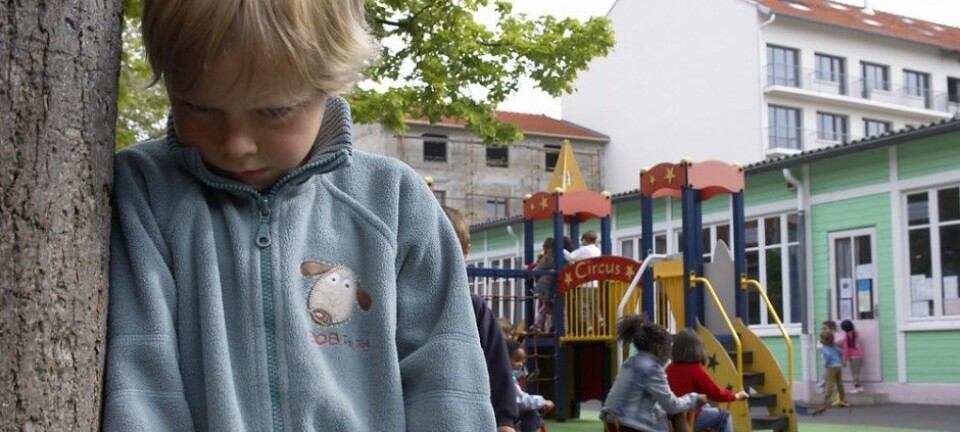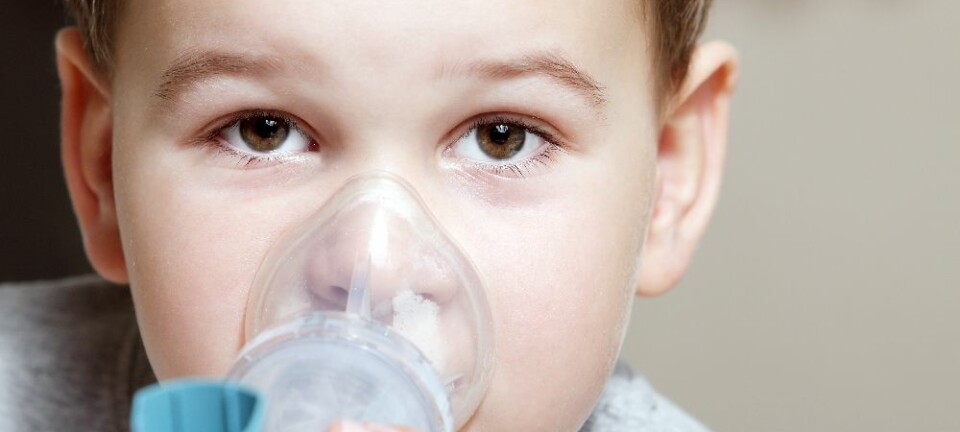An article from Norwegian SciTech News at NTNU

Great heights and deep valleys
Some children are more aggressive than others when they have bad experiences. But they are also calmer when life is good.
Denne artikkelen er over ti år gammel og kan inneholde utdatert informasjon.
Some children react more strongly to negative experiences than others. Scientists have found a link between aggression and variants of a particular gene.
But children who react most aggressively also tend to respond more strongly to good experiences, Norwegian researchers found. These children’s mood swings have deeper valleys, but also greater peaks.
Aggression is common in young children. Aggressive behaviour increases until children are around 4 years old, and then gradually subsides.
Research has shown that children who struggle with aggressive behaviour when they are young often carry these problems into puberty.
But aggression in children is not necessarily all bad. It may be a logical response to external factors, for example if children are exposed to violence and abuse.
Can be useful
Not only can aggression be the right response to an external influence, it may also be helpful to have more aggressive individuals among us.
In a stable situation with adequate resources, people with a stable temperament have an advantage. Individuals with a more variable disposition may overreact to even minor changes, which can be an evolutionary disadvantage.
But as soon as conditions change, such as an increase in the struggle for resources, those who react more strongly to external influences have the advantage.
According to some American scientists, probably the best scenario for a population is to have a broad mix of people with varying tendencies to react aggressively.
The Wall Street Journal highlighted Norwegian research results in a report that discussed aggression in light of evolutionary theory.
Gene connection found
Aggression is the result of both genetics and environment, making it interesting to examine how genes and environment interact. How do people with different genotypes react to different environmental conditions? (See fact box.)
In a group of children, some will be more aggressive than others. Some will react strongly to stress, while others maintain their equilibrium in almost any situation. The child’s genes can at least partly explain this phenomenon.
The Norwegian research group is led by Beate W. Hygen of NTNU’s Department of Psychology and NTNU Social Research. Researchers found a correlation between aggression and the particular gene variants present in children when they had experienced or not experienced serious life events.
This gene is involved in dopamine breakdown in the brain. (See fact box.)
This finding was in itself a confirmation of earlier studies, but the Norwegian researchers also found that children who were more aggressive when they were exposed to stress, were the least aggressive when they were not exposed to stress.
This indicated that they had a tendency to exhibit greater variation in behaviour in both directions than their less aggressive counterparts.
For better or for worse
These research findings help to substantiate the theory, referred to as “differential susceptibility,” that some individuals are more susceptible to environmental conditions, for better or for worse, partly because of their genotype.
Previously, scientists thought that some children are more vulnerable than others when experiencing trauma or stress, and that these vulnerable children function on an equal footing with others in positive environmental conditions.
Differential susceptibility theory argues that those individuals most affected by adverse conditions may also benefit most from positive conditions.
That is, these individuals function better under positive environmental influences than those who are not as susceptible to environmental conditions.
The results of the Norwegian study were recently published in Developmental Psychology.
The basis of the Norwegian research is the study Tidlig Trygg i Trondheim, in which about 1,000 children, their parents and teachers participated.
-------------------------------------
Read the Norwegian version of this article at forskning.no



































